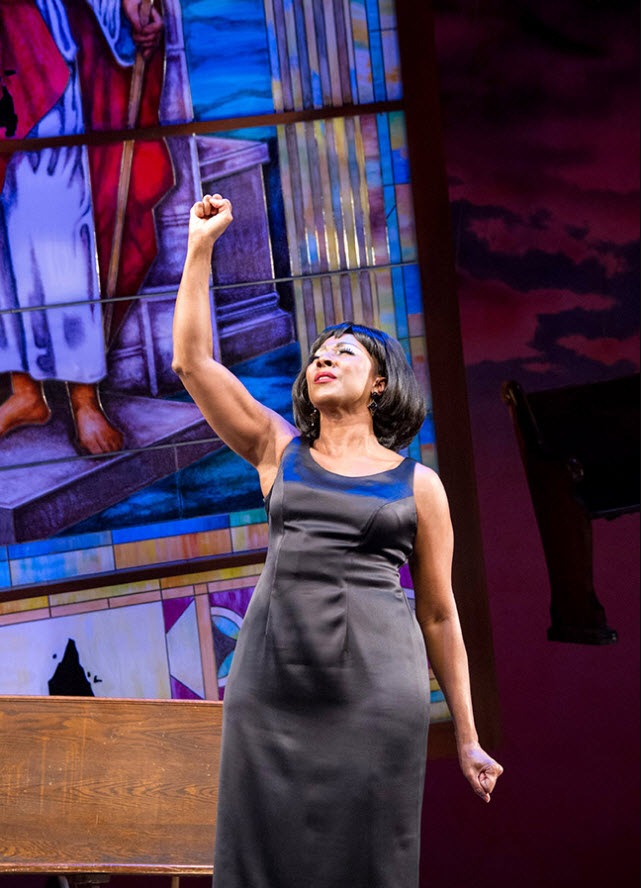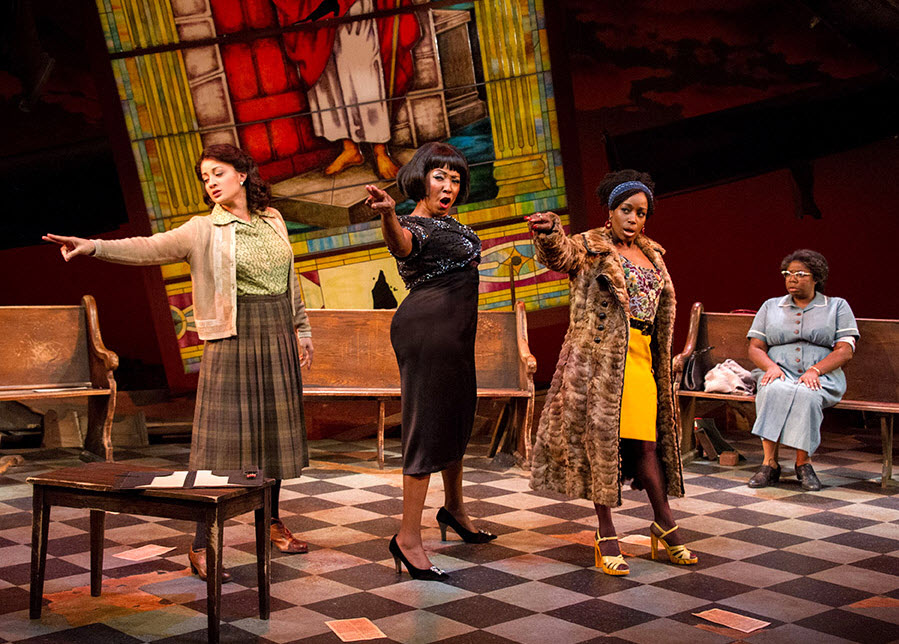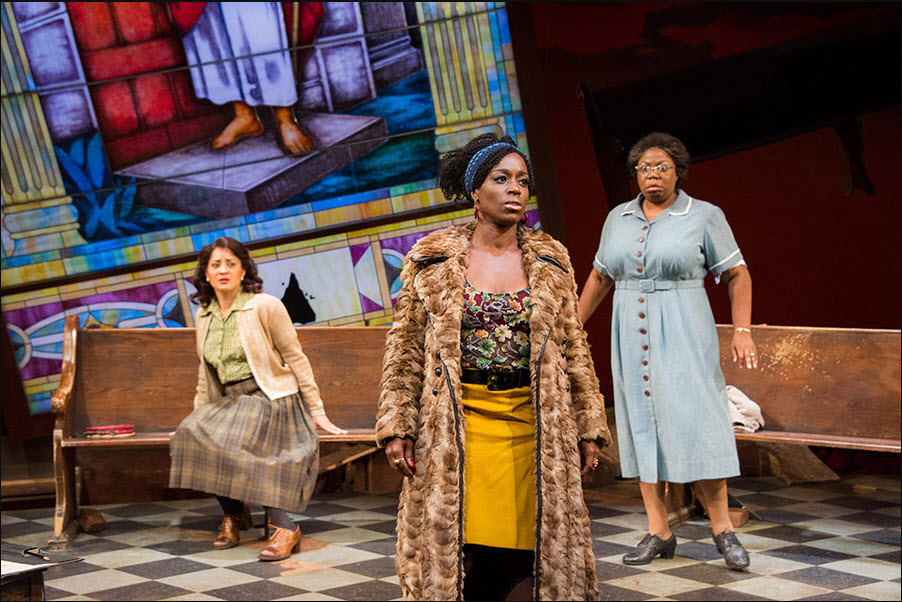Jordan Wright
November 18, 2017
Special to The Alexandria Times

Harriett D. Foy (Nina Simone) in Nina Simone: Four Women, Photo by C. Stanley Photography.
There’s no getting around one of the darkest moments in American history, when four African-American girls were murdered by white supremacists in the 16th Street Baptist Church bombing of 1963. There’s also no getting around that it continues unabated in present day America. Playwright Christina Ham’s deeply emotional and highly relevant play, Nina Simone: Four Women, directed by Timothy Douglas, gets to the heart of this tragedy by focusing on Nina Simone, the jazz singer whose bluesy songs made her popular in in both white and black America. For Simone (Harriett D. Foy), this horrific event in Birmingham, Alabama and the murder of Medgar Evers in Mississippi, galvanized her into speaking out through her music. Inspired, Simone sets about writing “Mississippi Goddam”, her iconic civil rights anthem about the slaughter of the little girls. “I want that song to cut folks like a razor,” Simone proclaims.

(L to R) Toni L. Martin (Sephronia), Harriett D. Foy (Nina Simone), Felicia Curry (Sweet Thing) and Theresa Cunningham (Sarah) in Nina Simone: Four Women. Photo by C. Stanley Photography.
While she works on her composition, she encounters three women also hiding within the confines of the church. Each speak of this devastating tragedy through different eyes. Auntie Sarah (Theresa Cunningham), a longtime church member, is a matronly, black woman (she would say ‘colored’), who has lived her life respectably – dutiful to her white employers and a strong believer in the power of religion. Sephronia (Toni L. Martin), is an activist, a girl of mixed race (she would say ‘high yellow’). She takes inspiration from Martin Luther King, Jr. and the protest movement. Lastly, Sweet Thing (Felicia Curry) is a street hooker, a rough-and-ready ghetto girl with a switchblade and a heap of anger. Each woman brings a unique perspective to what it means to be black in America. Each one has her own truth.
We see Simone as the consummate artist, a woman of conscience who has been radicalized by the inequality and injustice she has faced throughout her career. She tells the others, despite her success she has doubts and self-loathing, “Every day I have to conjure myself into a queen.”

(L to R) Toni L. Martin (Sephronia), Felicia Curry (Sweet Thing) and Theresa Cunningham (Sarah) in Nina Simone: Four Women. Photo by C. Stanley Photography.
With music directed and arranged by Darius Smith, who also accompanies the women on piano, their lush harmonies and deliberate delivery ensure that no one will miss hearing the lyrics nor their fierce intent as this fine cast scrolls through gospel hymns, jazz tunes and protest songs including Simone’s “Sinnerman”, Oscar Brown, Jr.’s “Brown Baby”, Simone’s co-written anthem, “Young, Gifted and Black”, and of course its eponymous song, “Four Women”. Choreography by Lady Dane Figueroa Edidi captures the spirit of African dance and old-time church revivals.
A powerful, brilliantly crafted, musical tribute to a woman and a movement.
Recommended.
Through December 24th at Arena Stage, 1101 Sixth St., SE, Washington, DC 20024. For tickets and information call 202 488-3300 or visit www.ArenaStage.org.